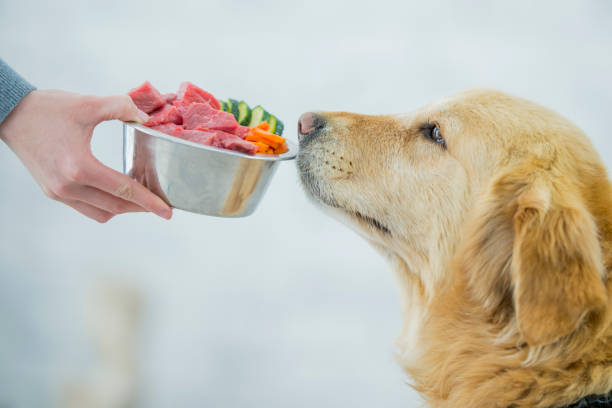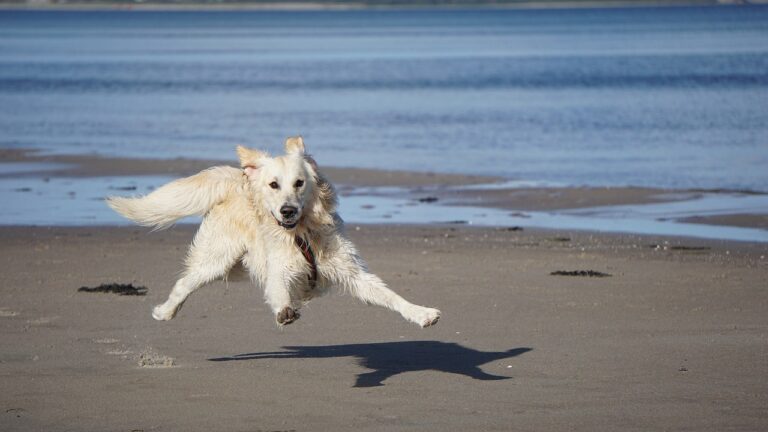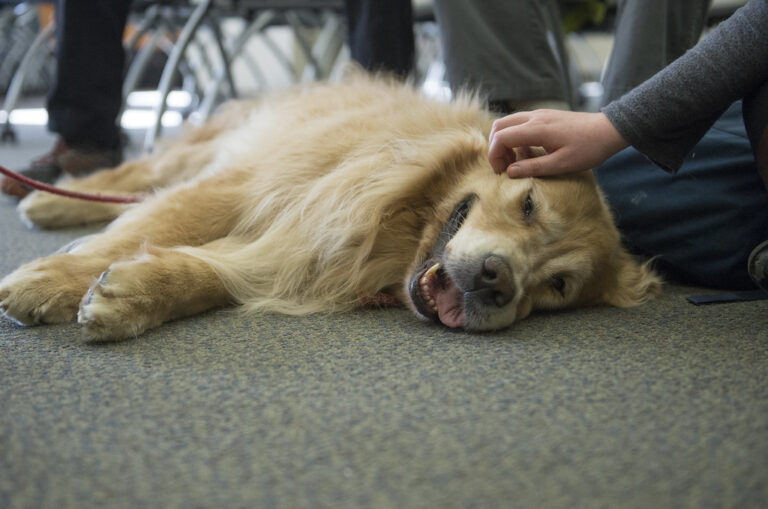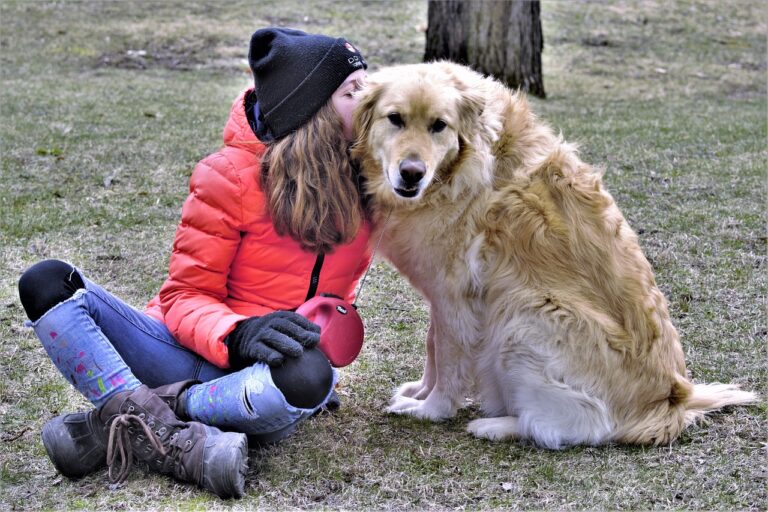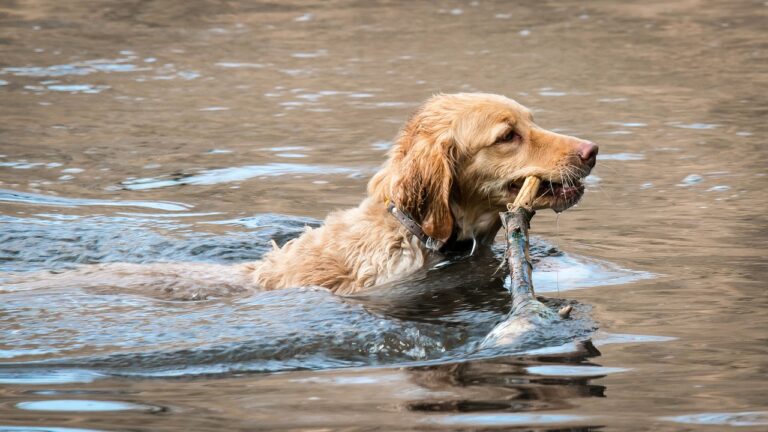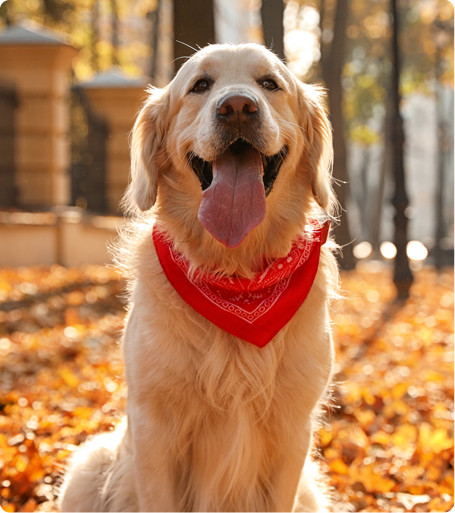Unlocking the Secrets: Nutrition Plans for Golden Retrievers Made Easy
The Golden Retriever: A Beloved Breed
Golden Retrievers are undoubtedly one of the most beloved dog breeds around the world. Known for their friendly nature, intelligence, and loyalty, these dogs make wonderful companions. If you’re considering adding a Golden Retriever to your family, it’s important to understand their unique characteristics and specific needs. In this section, we will introduce you to the world of Golden Retrievers and explore why nutrition plays a vital role in their overall well-being.
Introduction to Golden Retrievers
Golden Retrievers are medium to large-sized dogs that possess a beautiful golden coat, which is their signature feature. With their friendly and outgoing personality, they are often referred to as “gentle giants.” Golden Retrievers are known for their exceptional intelligence and versatility, excelling in various roles such as guide dogs, therapy dogs, search and rescue dogs, and family pets.
These dogs thrive on human companionship and are incredibly social. They often get along well with children, other pets, and strangers, which makes them an ideal addition to families of all sizes. Golden Retrievers have a natural love for water and are excellent swimmers, owing to their history as retrieving dogs.
To learn more about the friendly nature of Golden Retrievers and what to expect when bringing one into your home, check out our article on the Golden Retriever’s friendly nature: what to expect.
Why Nutrition is Important for Golden Retrievers
Proper nutrition is essential for the health and well-being of Golden Retrievers at every stage of their lives. A well-balanced diet provides them with the necessary nutrients to support their growth, maintain a healthy weight, and ensure optimal overall health. Golden Retrievers have specific nutritional requirements that should be met to prevent common health issues and promote longevity.
Feeding your Golden Retriever a high-quality diet that is appropriate for their age, size, and activity level is crucial. The right nutrition can help prevent obesity, which is a common concern for this breed, as they have a tendency to gain weight if overfed. Obesity can lead to various health problems, including joint issues, diabetes, and heart disease.
By providing your Golden Retriever with proper nutrition, you can also support their coat health, as their lustrous golden fur is a hallmark of the breed. Essential nutrients such as protein, fats, carbohydrates, vitamins, and minerals play a vital role in maintaining a healthy coat and skin.
To delve deeper into the specific nutrients that are important for Golden Retrievers and how they contribute to their overall health, check out our section on essential nutrients for Golden Retrievers.
Understanding the importance of nutrition sets the foundation for designing a suitable nutrition plan for your Golden Retriever. By consulting with a veterinarian, choosing the right dog food, and implementing proper portion control and feeding schedules, you can ensure that your Golden Retriever receives the nutrition they need to thrive. We will explore these aspects further in the upcoming sections.
Feeding Your Golden Retriever at Different Life Stages
To ensure the health and well-being of your beloved Golden Retriever, it’s essential to provide them with proper nutrition at every stage of their life. From puppyhood to their golden years, their dietary needs evolve, and it’s crucial to adjust their nutrition accordingly. Let’s explore the different nutritional requirements for Golden Retrievers at each life stage: puppy, adult, and senior.
Puppy Nutrition
During the puppy stage, your Golden Retriever is in a critical phase of growth and development. They require a diet that supports their rapid growth, provides energy, and builds a strong foundation for their adult life.
A balanced puppy food formulated specifically for large-breed puppies is recommended. These diets provide the necessary nutrients, including calcium and phosphorus, in appropriate ratios to support healthy bone and joint development. Aim for a diet that includes high-quality protein sources, whole grains, and essential vitamins and minerals.
It’s important to feed your Golden Retriever puppy multiple small meals throughout the day to prevent overeating and aid digestion. Consult with your veterinarian to determine the appropriate portion sizes based on your puppy’s age, weight, and activity level. Be cautious not to overfeed, as excessive weight gain can lead to health issues later in life.
Adult Nutrition
Once your Golden Retriever reaches adulthood, their nutritional needs change. At this stage, it’s important to maintain a balanced diet that supports their overall health, maintains their energy levels, and helps to prevent weight gain.
A high-quality adult dog food formulated for medium to large breeds is recommended. Look for a diet that includes a balance of protein, healthy fats, carbohydrates, vitamins, and minerals. Protein sources such as chicken, fish, or lamb are excellent choices.
Portion control is crucial to prevent obesity, which can lead to joint problems and other health issues. Follow the feeding guidelines provided on the dog food packaging, but also consider your dog’s activity level and metabolism. Regular exercise is essential to keep your Golden Retriever healthy and maintain their weight.
Senior Nutrition
As your Golden Retriever enters their senior years, their nutritional needs may change once again. Senior dogs are generally less active and may experience age-related health conditions. Adjusting their diet to support their changing needs can help them maintain a healthy weight and manage any health issues.
Switch to a senior-specific dog food that is lower in calories and includes ingredients that support joint health, such as glucosamine and chondroitin. These diets also tend to have higher fiber content to aid digestion and prevent constipation, which can become more common in older dogs.
Regular vet check-ups are crucial during the senior years. Your veterinarian can recommend any necessary dietary adjustments based on your Golden Retriever’s individual needs and health conditions.
Remember, nutrition is just one aspect of caring for your Golden Retriever. Providing them with regular exercise, mental stimulation, and plenty of love and attention are equally important for their overall well-being.
Essential Nutrients for Golden Retrievers
To ensure the overall health and well-being of your Golden Retriever, it’s essential to provide them with a balanced diet that meets their nutritional needs. Here are the key nutrients that should be included in your Golden Retriever’s diet:
Protein
Protein is an essential nutrient for Golden Retrievers as it plays a vital role in building and repairing tissues, supporting the immune system, and maintaining healthy skin and coat. High-quality animal-based proteins, such as chicken, beef, and fish, are excellent sources of protein for your furry friend. Aim for a dog food that contains at least 18% protein for adult Golden Retrievers and around 22% for puppies. Remember, the specific protein requirements may vary based on your dog’s age, activity level, and overall health.
Fats
Fats are an important source of energy for Golden Retrievers and also help in the absorption of fat-soluble vitamins. Omega-3 and omega-6 fatty acids, found in fish oil and other sources, are especially beneficial for maintaining healthy skin and a shiny coat. Including a moderate amount of healthy fats in your Golden Retriever’s diet is crucial. Look for dog food that contains around 8-15% fat for adult dogs and slightly higher (10-20%) for growing puppies.
Carbohydrates
While dogs primarily require protein and fats, carbohydrates also play a role in providing energy and fiber to support digestion. Whole grains like brown rice, oats, and barley are good sources of carbohydrates for Golden Retrievers. However, it’s important to ensure that the majority of your dog’s diet consists of high-quality proteins and healthy fats rather than relying heavily on carbohydrates.
Vitamins and Minerals
Vitamins and minerals are essential for various bodily functions, including immune system support, bone health, and overall growth and development. A well-balanced dog food should provide these nutrients in adequate amounts. However, it’s always a good idea to consult with your veterinarian to ensure that your Golden Retriever is receiving the right balance of vitamins and minerals. Regular check-ups and blood tests can help identify any potential deficiencies or imbalances.
It’s important to note that the specific nutrient requirements may vary based on factors such as age, activity level, and any underlying health conditions your Golden Retriever may have. Consulting with a veterinarian is highly recommended to determine the ideal diet and nutrient intake for your furry companion.
Proper nutrition is crucial for the overall health and longevity of your Golden Retriever. By providing a well-balanced diet that includes the essential nutrients mentioned above, you can support your dog’s growth, development, and overall well-being. Regular visits to the veterinarian and open communication will ensure that your Golden Retriever’s nutritional needs are being met throughout their life.
Designing a Nutrition Plan for Your Golden Retriever
To ensure your Golden Retriever stays healthy and happy, it’s essential to design a nutrition plan tailored to their specific needs. A well-rounded nutrition plan includes consultation with a veterinarian, choosing the right dog food, and implementing portion control and a feeding schedule.
Consultation with a Veterinarian
Before finalizing a nutrition plan for your Golden Retriever, consult with a veterinarian. They can provide valuable insights and guidance based on your dog’s specific health needs, age, and activity level. A veterinarian will assess your dog’s overall health and help you determine the appropriate nutrient requirements.
During the consultation, discuss any existing health conditions or allergies your Golden Retriever may have. This information will assist the veterinarian in recommending specific dietary modifications or restrictions that may be necessary. Remember to schedule regular check-ups to monitor your dog’s health and make any necessary adjustments to their nutrition plan.
Choosing the Right Dog Food
Choosing the right dog food is crucial for meeting your Golden Retriever’s nutritional needs. Look for high-quality dog food formulated specifically for Golden Retrievers or large breed dogs. These formulas are often designed to support joint health, maintain a healthy weight, and provide balanced nutrition.
When selecting dog food, consider the following factors:
- Ingredients: Opt for dog food that lists high-quality animal protein sources, such as chicken or beef, as the main ingredients. Avoid dog food with excessive fillers or artificial additives.
- Life stage formula: Ensure the dog food is appropriate for your Golden Retriever’s life stage, whether they are a puppy, adult, or senior. Each life stage has different nutritional requirements.
- Special dietary needs: If your Golden Retriever has specific dietary requirements or sensitivities, choose dog food that addresses those needs. Consult with your veterinarian for recommendations.
Remember to transition your Golden Retriever slowly to any new dog food to avoid digestive upset. Gradually mix increasing amounts of the new food with the old food over a week.
Portion Control and Feeding Schedule
Maintaining appropriate portion control and establishing a feeding schedule is essential for your Golden Retriever’s overall health and weight management. Overfeeding can lead to obesity and related health issues, while underfeeding can cause nutrient deficiencies.
Refer to the dog food packaging for general feeding guidelines based on your Golden Retriever’s weight and age. However, keep in mind that individual dogs may have unique needs, so it’s important to monitor their body condition and adjust the portion sizes accordingly. Your veterinarian can help you determine the optimal portion sizes for your Golden Retriever.
Divide the daily recommended amount of food into two or three meals throughout the day. This helps prevent overeating and aids in digestion. Avoid free-feeding or leaving food out all day, as it can lead to overconsumption and weight gain.
By following these guidelines and regularly reviewing your Golden Retriever’s nutrition plan with your veterinarian, you can ensure they receive the proper nutrients to thrive at every stage of their life. For additional tips on caring for your Golden Retriever, check out our article on essential care tips for Golden Retriever puppies.
Special Considerations for Golden Retrievers
As a responsible Golden Retriever owner, it’s important to be aware of special considerations when it comes to their nutrition. Golden Retrievers may have specific needs and conditions that require attention. In this section, we will discuss three important considerations: allergies and food sensitivities, weight management, and health conditions.
Allergies and Food Sensitivities
Just like humans, Golden Retrievers can develop allergies and food sensitivities. Common allergens for dogs include ingredients such as beef, chicken, dairy, wheat, and soy. If you notice signs of allergies such as itching, redness, or digestive issues, it’s essential to consult with your veterinarian to determine the cause.
To manage allergies and food sensitivities, your veterinarian may recommend a specialized diet that avoids the allergens. This could include feeding your Golden Retriever hypoallergenic dog food or selecting a limited ingredient diet. It’s important to carefully read food labels and avoid any ingredients that may trigger an allergic reaction. For more information on managing allergies in Golden Retrievers, check out our article on managing shedding and allergies with Golden Retrievers.
Weight Management
Golden Retrievers are prone to weight gain, which can lead to various health issues. Maintaining a healthy weight is crucial for their overall well-being. If your Golden Retriever is overweight, it’s important to work with your veterinarian to develop a weight management plan.
To help manage your Golden Retriever’s weight, consider the following strategies:
- Measure and control portions: Use a measuring cup to ensure accurate portion sizes and avoid overfeeding.
- Choose a balanced diet: Select a high-quality dog food that is appropriate for your Golden Retriever’s age and activity level.
- Avoid excessive treats: Limit the number of treats and choose healthy, low-calorie options.
- Regular exercise: Engage your Golden Retriever in regular physical activity to help burn calories and maintain muscle tone.
Remember, weight management is an ongoing process, and regular monitoring and adjustments may be necessary. If you have concerns about your Golden Retriever’s weight, consult with your veterinarian for guidance and support.
Health Conditions
Golden Retrievers are prone to certain health conditions that may require specific dietary considerations. These conditions can include hip dysplasia, elbow dysplasia, heart disease, and certain types of cancer. While nutrition alone cannot prevent these conditions, it can play a supportive role in managing them.
If your Golden Retriever has a specific health condition, it’s important to work closely with your veterinarian to develop a nutrition plan that addresses their individual needs. This may involve specialized diets, supplements, or adjustments to their feeding routine. Regular veterinary check-ups and monitoring are crucial to ensure that your Golden Retriever’s nutritional needs are being met.
By being aware of these special considerations and working closely with your veterinarian, you can ensure that your Golden Retriever receives the best possible nutrition to support their overall health and well-being. Remember, every Golden Retriever is unique, and what works for one may not work for another. Tailor their nutrition plan to their specific needs and provide them with the care they deserve.
Supporting Your Golden Retriever’s Health through Nutrition
To ensure the overall well-being and vitality of your beloved Golden Retriever, it’s important to provide them with proper nutrition. In addition to a well-balanced diet, there are a few additional aspects to consider when it comes to supporting your Golden Retriever’s health through nutrition. These include supplements and treats, hydration and fresh water, and regular monitoring and adjustments.
Supplements and Treats
Supplements can play a beneficial role in your Golden Retriever’s diet, helping to fill in any nutritional gaps and support their overall health. However, it’s essential to consult with your veterinarian before introducing any supplements to your dog’s routine. Your vet can guide you in selecting the appropriate supplements based on your Golden Retriever’s specific needs.
When it comes to treats, be mindful of their nutritional value. Opt for treats that are specially formulated for dogs, with high-quality ingredients. Treats should be given in moderation and not replace regular meals. Remember to consider your Golden Retriever’s dietary requirements and any potential allergies or sensitivities they may have. For more information on allergies, check out our article on managing shedding and allergies with Golden Retrievers.
Hydration and Fresh Water
Proper hydration is vital for your Golden Retriever’s health. Always ensure that your dog has access to fresh, clean water throughout the day. Golden Retrievers are known to enjoy water activities, so it’s important to monitor their water intake, especially during hot weather or after vigorous exercise. For more tips on building a safe and fun relationship between Golden Retrievers and water, visit our article on Golden Retrievers and water: building a safe and fun relationship.
Regular Monitoring and Adjustments
Your Golden Retriever’s nutritional needs may change over time, so it’s crucial to regularly monitor their health and make any necessary adjustments to their diet. Keep an eye on their weight, energy levels, and overall condition. If you notice any changes, consult with your veterinarian for guidance.
Monitoring your Golden Retriever’s food intake is also important. Follow the feeding guidelines provided by your veterinarian or dog food manufacturer. Adjust the portion sizes as needed based on your dog’s age, activity level, and overall health. Regularly check their body condition score to ensure they maintain a healthy weight. Your vet can provide guidance on how to assess your Golden Retriever’s body condition score accurately.
By paying attention to supplements and treats, ensuring proper hydration, and regularly monitoring and adjusting your Golden Retriever’s diet, you can support their overall health and well-being. Remember to consult with your veterinarian for personalized advice and recommendations for your furry friend.
